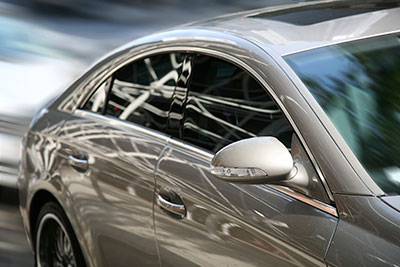 In Georgia, it is the law to carry car insurance on your vehicle. Therefore, if you fail to carry a policy, you break an important safety regulation. The requirement isn’t there to burden you. It exists to protect both you and others when car accidents occur. If you fail to carry coverage, you will likely face the consequences, among which might be the requirement to get an SR-22 certificate. What is this form? What can you expect to happen when this penalty arises?
In Georgia, it is the law to carry car insurance on your vehicle. Therefore, if you fail to carry a policy, you break an important safety regulation. The requirement isn’t there to burden you. It exists to protect both you and others when car accidents occur. If you fail to carry coverage, you will likely face the consequences, among which might be the requirement to get an SR-22 certificate. What is this form? What can you expect to happen when this penalty arises?
SR-22s are nothing to mess with, and driving uninsured is one of the best ways to find yourself having to file for one. After all, the SR-22 directly links to your ability to buy and maintain active, appropriate car insurance.
Car Insurance Rules In Georgia
Georgia is an at-fault insurance state, and requires drivers who cause accidents to pay for the damage they do to others. So, if you were to hit another car from behind, the accident would likely therefore be your fault. You might have to pay for the other vehicle’s damage. In most cases, you can use your car insurance to do so.
The portion of car insurance that pays for third-party damage a policyholder causes is auto liability insurance. By having coverage, you therefore make sure you can pay at least a portion, if not all of the damage costs of another person if accidents occur.
That’s why most at-fault states require drivers to have liability coverage. Without it, you might have to pay for someone else’s losses out-of-pocket, which might put both you and the other party in an uncertain position if you lack the resources to do so.
In Georgia, the requirements for liability coverage are:
· $25,000 bodily injury liability coverage per one person in a wreck (per person coverage)
· $50,000 bodily injury liability coverage for all persons in a wreck (per accident coverage)
· $25,000 property damage liability coverage per accident
So, your policy will pay up to $25,000 for someone else’s injury costs, and up to $50,000 for all the injury costs of that accident. It will also pay up to $25,000 for the property damage of the wreck, like the other vehicle’s damage. Of course, these are only the minimum required limits, and you can increase them, in most cases, to your satisfaction.
However, you should never carry less than Georgia’s required coverage. And, you should never drive uninsured at all. If you do, you might have to get an SR-22 certificate.
What’s the SR-22?
An SR-22 is a form that certain drivers must apply for from their auto insurance companies. The insurance company will then send the SR-22 to the state’s DMV, which keeps the form on file as proof that the driver has active car insurance.
The reason drivers must get SR-22s is because they have committed driving offenses that have caused the authorities to recognize them as high-risk drivers. A high-risk driver is one who has a significant chance of causing an accident or other vehicle mishap. They therefore have a greater possibility of causing harm to others when they get behind the wheel.
High-risk drivers might be those who have received DUI charges, caused severe at-fault accidents or received numerous driving citations. However, one of the fastest ways to get an SR-22 is to fail to drive with car insurance.
High-risk drivers have higher chances of having to file a claim on their auto insurance. However, drivers also, simply by failing to carry car insurance, make themselves higher risks than insured drivers. That’s why some people are forced to carry the SR-22 certificate. It will force those with the highest chances of causing wrecks to carry the car insurance that they, perhaps more than others, desperately need.
SR-22s Are Penalties—Treat Them As Such
If you have to get an SR-22, you must abide by at because it is a legal penalty. Once you attach the certificate to your policy, you must keep it there for a defined period of time, usually two or three years. To keep the certificate active, you must keep your car insurance active. After all, you received the penalty by driving without insurance. Therefore, to let your coverage lapse would be in direct violation of your policy.
During the time that you face the SR-22 penalty, you might see your car insurance rates rise. That is because the penalty indicates you are a high-risk driver, and high-risk drivers usually have to pay more for their policy. All the same, you can work alongside your Peachstate Insurance agent to determine the appropriate SR-22 policy at an affordable cost.